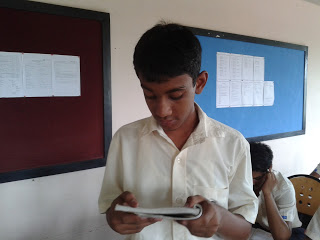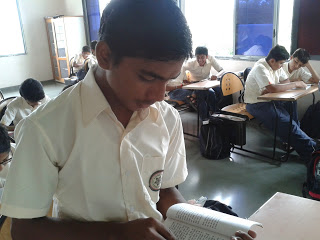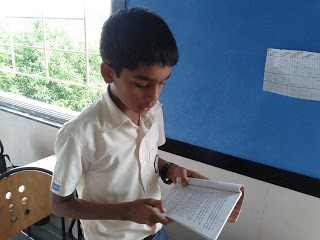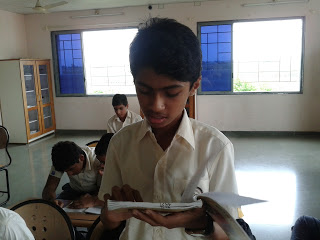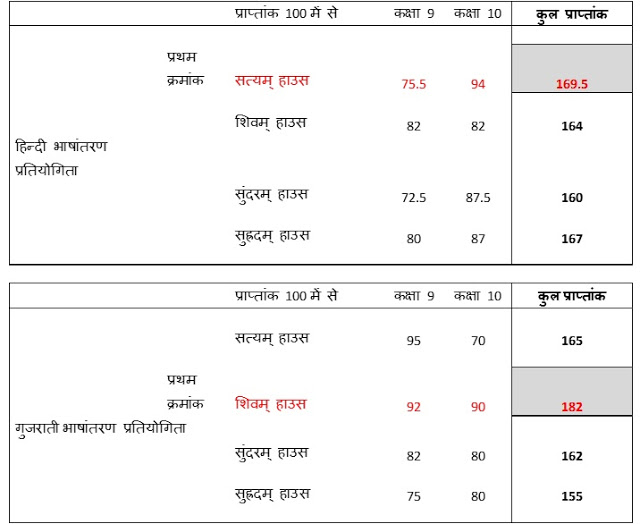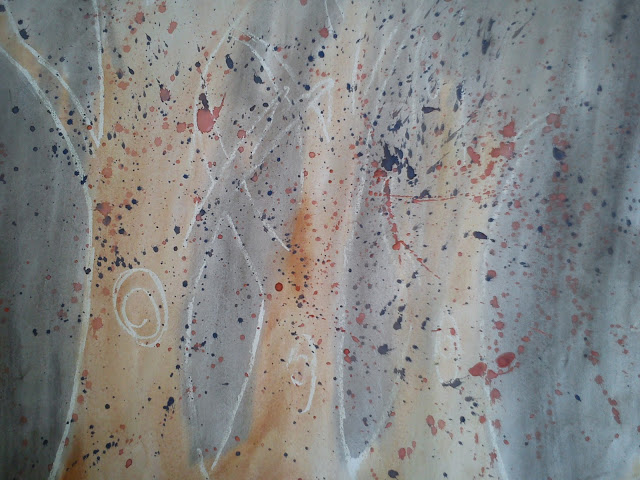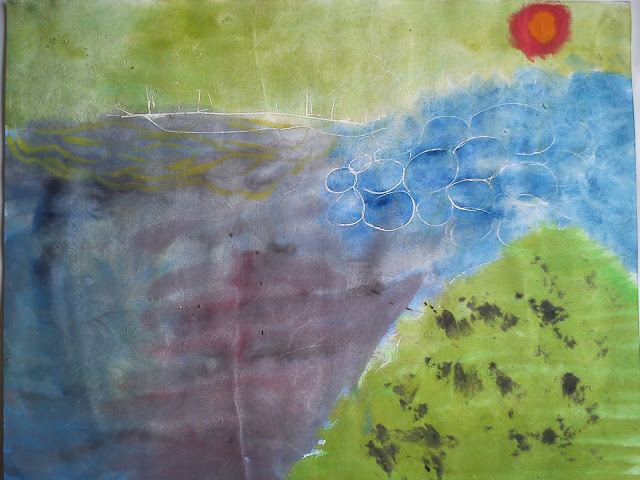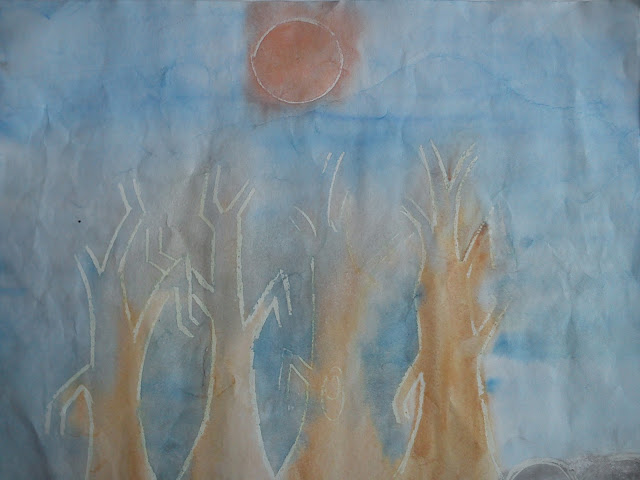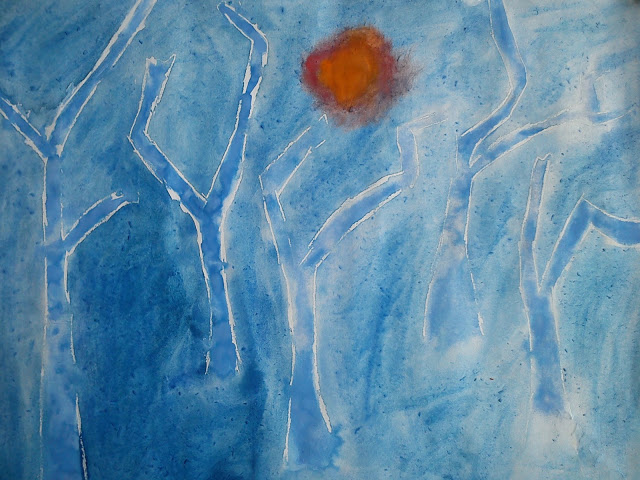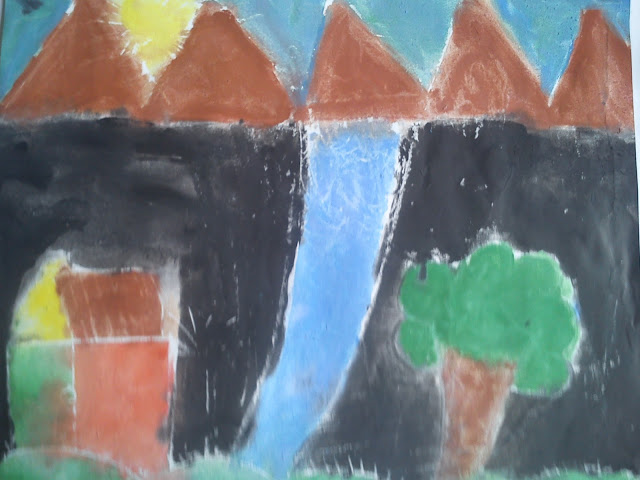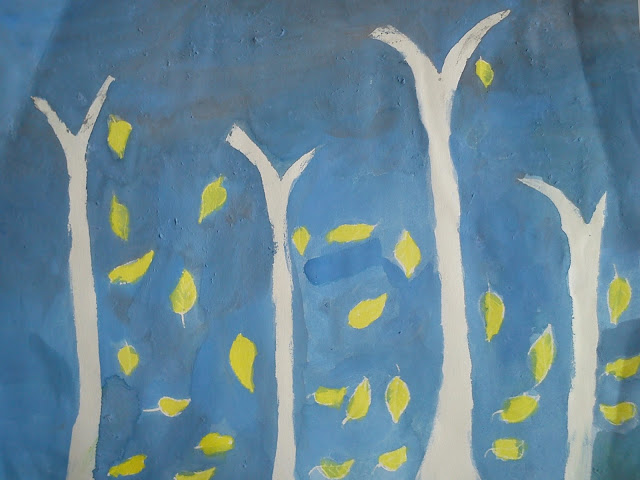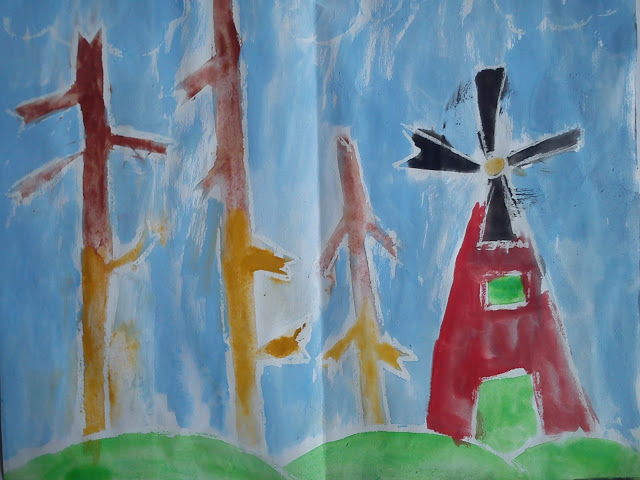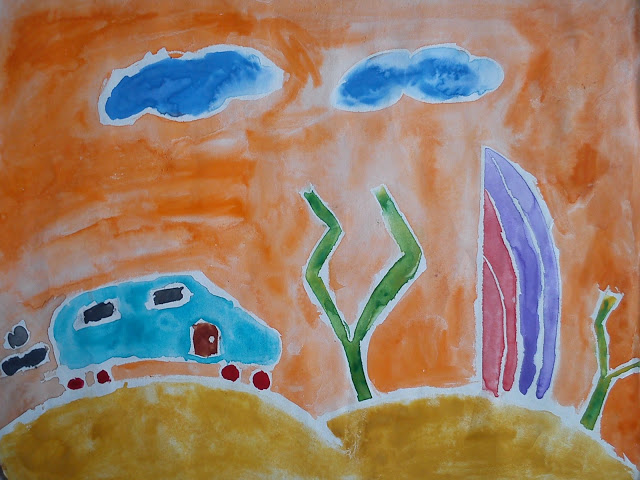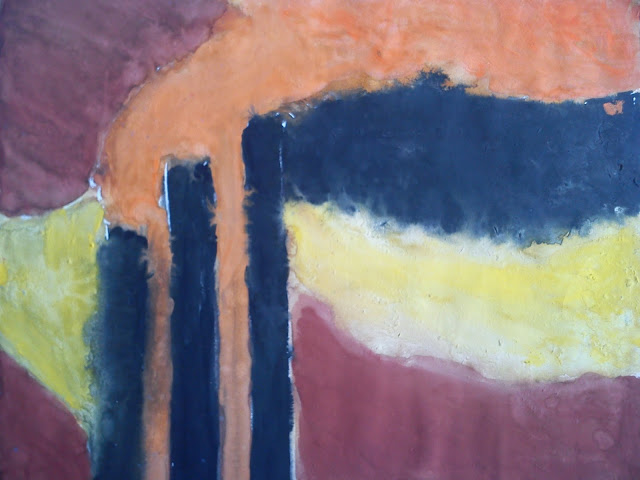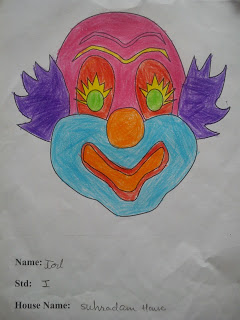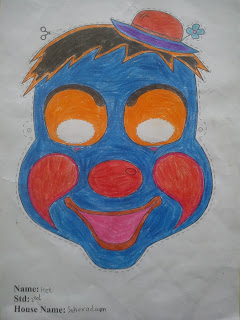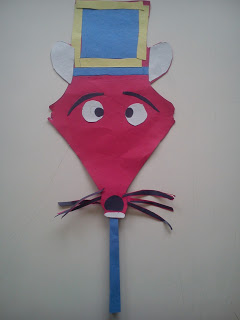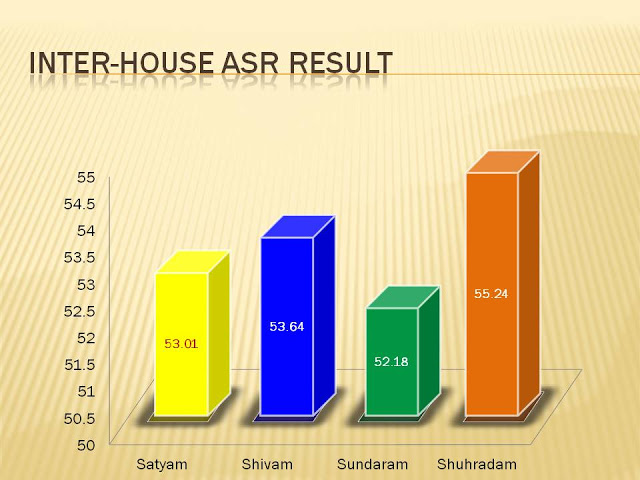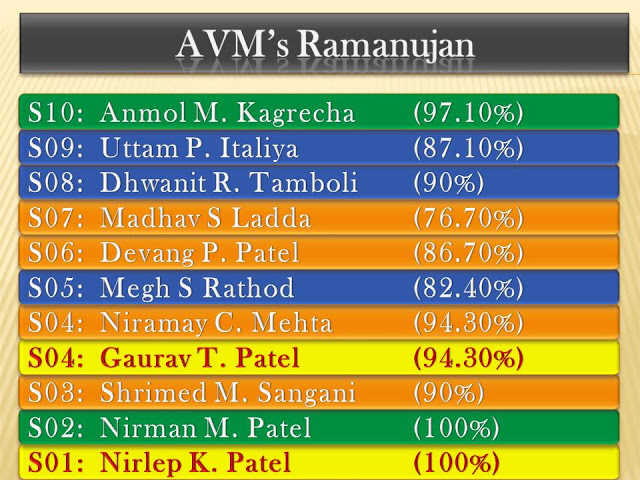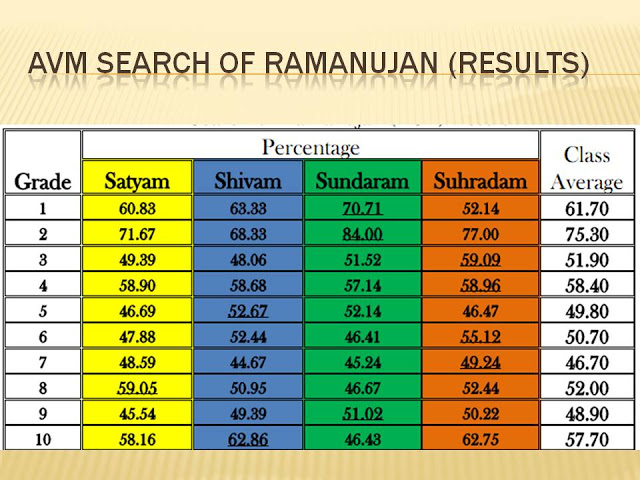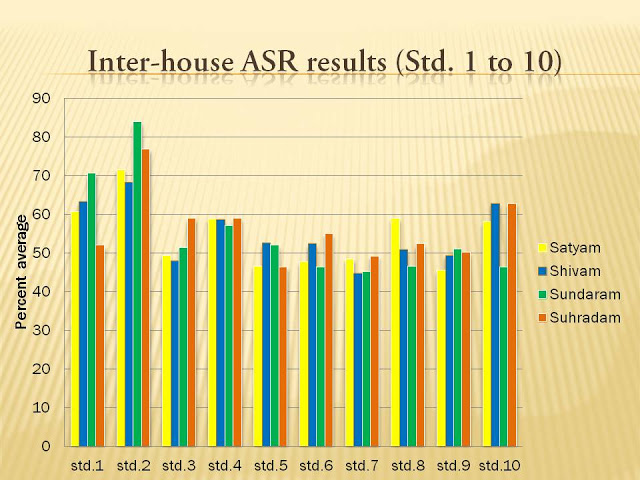Academic year 2012 -13 has been a remarkable year for Atmiya Vidya Mandir in so many ways. The year was full of opportunities for students to excel. Students were engaged in wide ranging activities from different subjects in classrooms to different sports on the field. Let it be the preparations of creative assemblies for Saturdays or the value based projection on soft board; the enthusiasm of the teachers and the students was unparalleled. The year also witnessed the inception of the debate club at AVM. The year will also be remembered for some record breaking performances by the students on the tracks and fields as well as some breath-taking performances on the stage. All in all it was a significant year at AVM which needed to be capped with a huge celebration. Hence the program ‘Saransh – Let us celebrate each other’.
Every year students of AVM, who are divided in four houses: ‘Satyam’, ‘Shivam’, ‘Sundaram’ and ‘Suhradam’, compete in different categories throughout the year to win a coveted trophy – ‘House of the year’. The idea behind this year long series of competitions is to provide students with the opportunities to develop and master so many of the much essential 21st century life skills which are equally important along with their studies. It is also an opportunity for students to experience the highs of victory and lows of defeats which they will experience in the real life. In a way it prepares them gradually to become a successful person of the society.
Coming back to ‘Saransh’, it has been a tradition at AVM to celebrate all the achievements from different students and relive those amazing moments. This year for the first time, students from class 8, took up the job of organising the whole function under the guidance of Chirag sir and Suhradam sir. Along with the organisation of the function, four students from class 8 also hosted the function wonderfully with amazing confidence. If the first pair of anchors Nihar bhai and Jugal bhai was humorous and witty, the second pair of Vishrut bhai and Dinal bhai was smart and effective.
The first set of awards were individual / group in acting, dancing and singing category. Here are the winners:
- Best Singer: Nirmalbhai Patel (9B)
- Best Actor: Shubhambhai Patel (11 Commerce)
- Best Dance: ‘Dasavatar group’ from Suhradam House
Arguably the most important individual trophies for the evening were the ‘student of the year’ trophies. The winners of these trophies were adjudged on the basis of some stringent criteria. And here are the winners of this prestigious trophy.
- Meghbhai Rathod (5 B) (Category class 5 and 6)
- Vinamrabhai Patel (7 A) (Category class 7 and 8)
- Sachinbhai Verlekar (10 B) (category class 8, 9 and 10)
The students were also elated with the presence of the senior most students from class 12 in the hall. As they are preparing for the upcoming board exams, their presence was noted and appreciated by everyone. Not only that the students from class 6,7 prepared a wonderful dance to wish them best of luck for the toughest test of their lives yet.
The atmosphere inside the prayer hall was very exciting as the anchors were slowly building up towards the announcement of ultimate winners for the evening – ‘House of the year’. But before that, it was the time to announce House of the year in sports, academics, creative assemblies and softboard display. Here are the winners:
- Best Academic House – Suhradam House
- Best Sports House – Satyam House
- Best House in Creative Assembly – Suhradam House
- Winners of Debating Club Competition – Satyam House
- Best Soft Board Display – Shivam House
- Best House in Athletics – Sundaram House
Rohanbhai Shingala (9B), the vice head boy of the school gave a heart-warming vote of thanks. He thanked all the staff members from different wings of the campus who made it possible for a wonderful and joyous year for the students.
The members of the student council were also appreciated by the school principal respected Vijay sir, as he handed certificates of appreciation to all the members.
Now it was the turn of the biggest announcement of the evening. For this big announcement P. Ashokbhai Patel (Personal Secretary to H.D.H. Hariprasad Swamiji) and respected Haresh Sir (Administrator) were invited on the stage. As they pronounced ‘The House of Unbeatable Spirit – Sundaram House as the winners the hall erupted with the voices of joy, enthusiasm and cheers from all the students. On behalf of Sundaram house the trophy was received by the House Captain Tanmaybhai Patel (10 B), Sports Captain Harshilbhai Soni (10B), house teachers and some key students from Sundaram house.
As the evening faded, everyone present in the hall experienced a sense of fulfilment for an amazing work they did together. In the end the function ‘Saransh – let us celebrate each other’ would be remembered for how all the students together celebrated the spirit and values at Atmiya Vidya Mandir.

